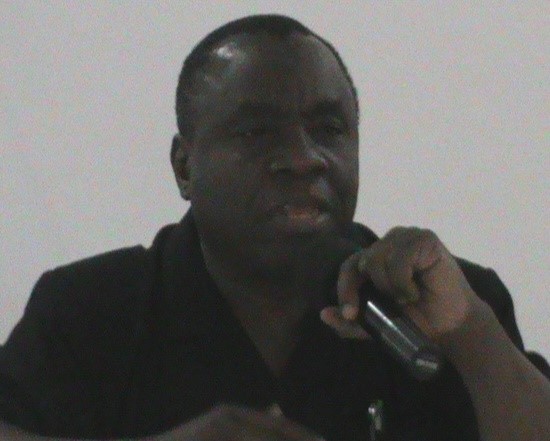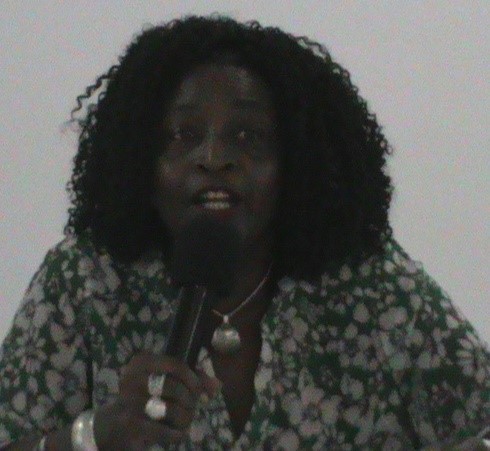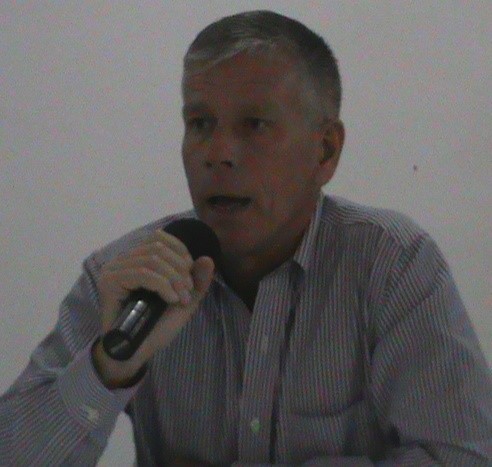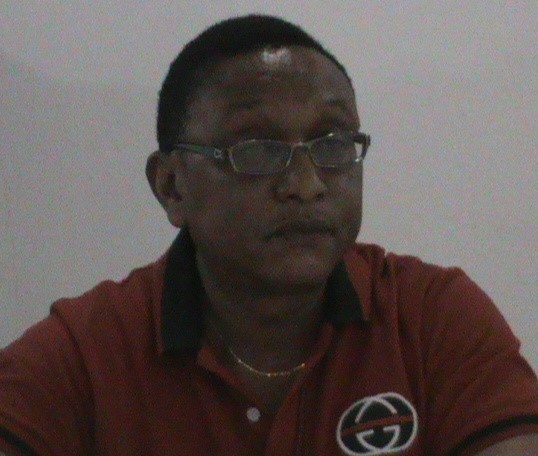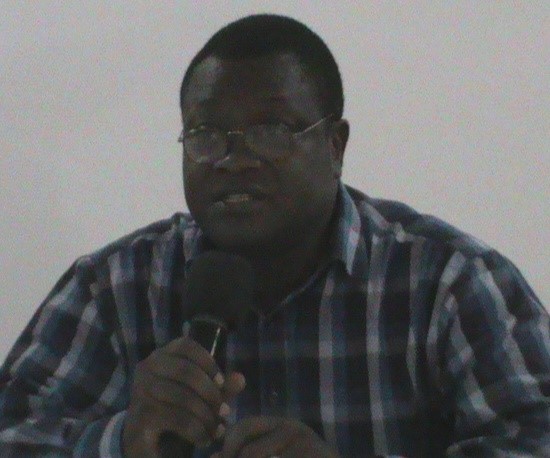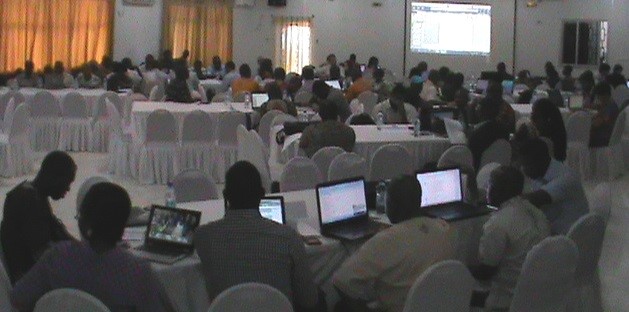
Makeni, Aug. 31, 015 (MOHS) – The Ministry of Health and Sanitation has concluded its 3 days District Workshop to develop operational plans for the implementation of the Health Sector Recovery Plan.
Cross section of participants
Addressing participants at the closing ceremony at the Wusum Hotel conference hall in Makeni, Deputy Minister of Health and Sanitation 1, Mr. Foday Sawi described the Ministry’s Post Ebola Recovery Plan as comprehensive but requires critical steps to get it translated into positive actions that would make the necessary impact.
Deputy Health and Sanitation Minister 1, Mr. Foday Sawi making the closing remarks
He noted that all the districts at the end of the workshop had plans that are aligned with the National Recovery Plan, adding that with the available information of data collecting tools in the districts, he is optimistic of meeting the challenges to sustain the plan for posterity.
Mr. Sawi encouraged participants to sensitize their colleagues as they go back to their various districts, describing the current status of the Ebola outbreak as “a battle in continuation” that needed community engagement, monitoring and supervision and other key interventions.
The Deputy Minister paid tribute and condolences to the lost doctors, nurses and other health workers whose contributions would have also been vital for the development and implementation of the Recovery Plan describing them as fallen heroes in the fight against the Ebola virus disease.
Deputy Chief Medical Officer and Chairman Operational Team for the Early Recovery Plan, Dr. Sarian Kamara while giving an overview on the workshop and the achievements, underscored the importance of the inclusion of all checklists into the National Plan, financial management and disbursement and Key Performance Indicators.
Dr. Sarian Kamara Deputy Chief Medical Officer and Chairman Operational Team for the Early Recovery Plan
She said participants were able to develop their operational plans per district and that each district was able to apply key performance indicators on the available tools, and agreed on the timelines.
The WHO Country Representative, Dr. Anders Nordstrom expressed satisfaction over the category of participants noting that District Medical Officers, Medical Superintendents in hospitals, Monitoring and Evaluation Officers and District-Based Recovery Team Data Analysts all have key roles to play if the implementation of the plan is to achieve its desired objective.
WHO Country Representative, Dr. Anders Nordstrom
The early 6-9 months Recovery Plan he said would help participants improve services and expand on health systems in the areas of reporting, operation, community engagement and other key challenges.
He reiterated WHO’s continued support and commitment in collaborating with the Ministry of Health and Sanitation to bring the Ebola fight to an end.
The State House District Liaison Presidential Team Representative, David Sam Suale’ reiterated their commitment to provide coordination at a satisfactory level and encouraged the Health Ministry to ensure they take the lead in the implementation of the plan.
State House District Liaison Presidential Team Representative David Sam Suale’
He expressed gratitude to donor partners who have been providing support and appealed for continued cooperation in building a resilient health system.
The Director, Health Systems, Strengthening, Policy, Planning and Information, Dr. Samuel Kargbo recalled that 13 years ago when the civil war ended in the country with devastation on the health facilities across the country, the Ministry used the required strategy with the help of government and partners to recover and bring back normalcy in the health care delivery system, similarly he said the Ebola outbreak in May 2014 had a grip on the weak health system and inspired them with a learning lesson to do more.
Director, Health Systems Strengthening, Policy, Planning and Information Dr. Samuel Kargbo
He described the Recovery Plan as unique, pointing out that using the five pillars: Patient and health workers safety, Essential health care delivery services, Health workforce, Community ownership, Health information management system and surveillance would be a winning tool for the recovery programme.
Other speakers include representatives from UNICEF, UNFPA and presentations on the MOHS Early Recovery Plan by Regina Bash Taqi, Status of the plan by Audric Mitraros, Planning and monitoring tools by Wogba Kamara and the next steps by Planning Specialist, Mr. Philip Amara.
JAK/KK/MOHS

